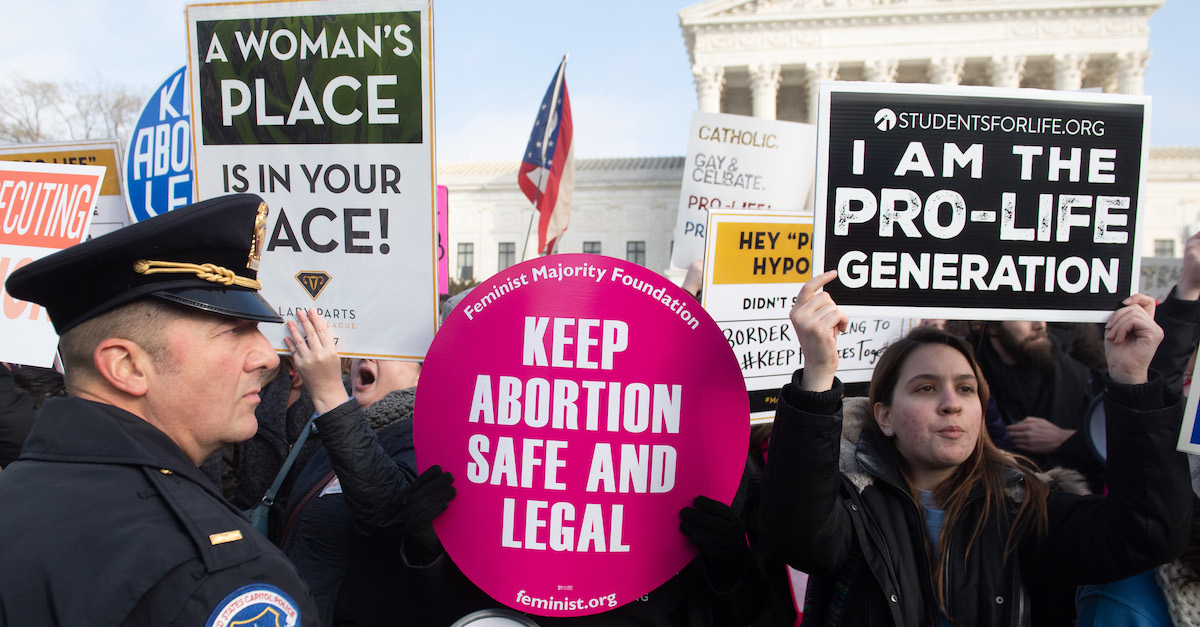
Looks like there’s at least one powerful person in Arkansas determined not to let the state become the next Gilead. Tuesday evening, U.S. District Judge Kristine Baker indefinitely extended the temporary restraining order she’d signed in late July. That order had been due to expire at 11:45 p.m. Tuesday; without it, three new Arkansas state laws that heavily restrict abortion would have gone into effect.
If permitted to go into action, those laws would have: (1) banned all abortions after 18 weeks of pregnancy (except in cases of rape and incest); (2) banned anyone other than board-certified obstetrician-gynecologists from performing abortions; and (3) outlawed any abortion motivated by a pregnant woman’s desire to terminate a pregnancy that might result in a child born with Down Syndrome. The board-certification requirement would, not-so-coincidentally, mean that Little Rock Family Planning Services — Arkansas’ sole abortion clinic — would be shut down.
The American Civil Liberties Union (ACLU) and the Center for Reproductive Rights challenged the measures, filing a lawsuit on behalf of Dr. Frederick Hopkins, a Little Rock abortion provider. About the laws, Holly Dickson, of the ACLU of Arkansas, said:
These extreme bans and restrictions would have decimated abortion access in Arkansas, so we’re relieved the court has again blocked them from taking effect.
At the preliminary phase, Judge Baker agreed, writing in her ruling:
The threatened harm to Dr. Hopkins and the fraction of women for whom the Mandate is relevant clearly outweighs whatever damage or harm a proposed injunction may cause the State of Arkansas.
Although Judge Baker’s ruling to extend her order indefinitely is a clear win for proponents of reproductive freedom, the case is far from over. Leslie Rutledge, a representative for the Arkansas attorney general, told the press her office would immediately appeal Judge Baker’s decision to the Eighth U.S. Circuit Court of Appeals.
Restrictive abortion laws such as the Arkansas trio were similarly passed and successfully challenged in court in Mississippi, West Virginia, Alabama, Kansas, Louisiana and Oklahoma.
[Image via Saul Loeb/AFP/Getty Images.]